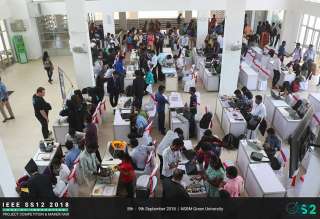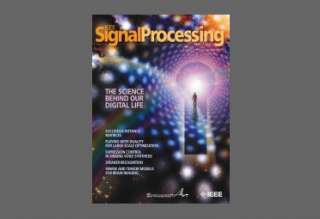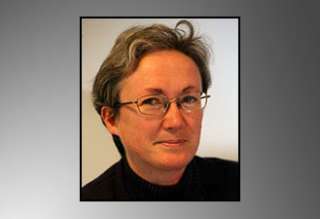SPS Feed
Top Reasons to Join SPS Today!
1. IEEE Signal Processing Magazine
2. Signal Processing Digital Library*
3. Inside Signal Processing Newsletter
4. SPS Resource Center
5. Career advancement & recognition
6. Discounts on conferences and publications
7. Professional networking
8. Communities for students, young professionals, and women
9. Volunteer opportunities
10. Coming soon! PDH/CEU credits
Click here to learn more.
The Latest News, Articles, and Events in Signal Processing
Classical algorithms for the multiple measurement vector (MMV) problem assume either independent columns for the solution matrix or certain models of correlation among the columns. The correlation structure in the previous MMV formulation does not capture the signals well for some applications like photoplethysmography (PPG) signal extraction where the signals are independent and linearly mixed in a certain manner.
The focus of this paper is on detection theory for union of subspaces (UoS). To this end, generalized likelihood ratio tests (GLRTs) are presented for detection of signals conforming to the UoS model and detection of the corresponding “active” subspace. One of the main contributions of this paper is bounds on the performances of these GLRTs in terms of geometry of subspaces under various assumptions on the observation noise.
Recovery of certain piecewise continuous signals from noisy observations has been a major challenge in sciences and engineering. In this paper, in a tight-dimensional representation space, we exploit sparsity hidden in a class of possibly discontinuous signals named finite-dimensional piecewise continuous (FPC) signals. More precisely, we propose a tight-dimensional linear transformation which reveals a certain sparsity in discrete samples of the FPC signals.
Alan Bovik has a storied career. An American engineer, vision scientist and Primetime Emmy Award winner, Bovik holds the Cockrell Family Endowed Regents Chair in Engineering at The University of Texas at Austin, where he has been the Director of the Laboratory for Image and Video Engineering for more than three decades.
Speech recognition technology allows computers to take spoken audio, interpret it and generate text from it. But how do computers understand human speech? The short answer is…the wonder of signal processing.

I have an open position in my group for a fully funded PhD student. The requirements are strong background in Mathematics and Signal Processing. Familiarity with Machine Learning and Communication Theory are preferable.
May 15-17, 2019
Location: Tokyo, Japan
White Paper Due: December 1, 2018
Publication Date: January 2020
CFP Document
Lecture Date: October 24, 2018
Chapter: Croatia
Chapter Chair: Goran Molnar
Topic: Light field image processing
June 2-5, 2019
Location: Minneapolis, MN, USA

The Department of Computer Science at the National University of Singapore is seeking a postdoctoral research fellow to work with Dr. Jonathan Scarlett.
Pages
SPS Social Media
- IEEE SPS Facebook Page https://www.facebook.com/ieeeSPS
- IEEE SPS X Page https://x.com/IEEEsps
- IEEE SPS Instagram Page https://www.instagram.com/ieeesps/?hl=en
- IEEE SPS LinkedIn Page https://www.linkedin.com/company/ieeesps/
- IEEE SPS YouTube Channel https://www.youtube.com/ieeeSPS





















